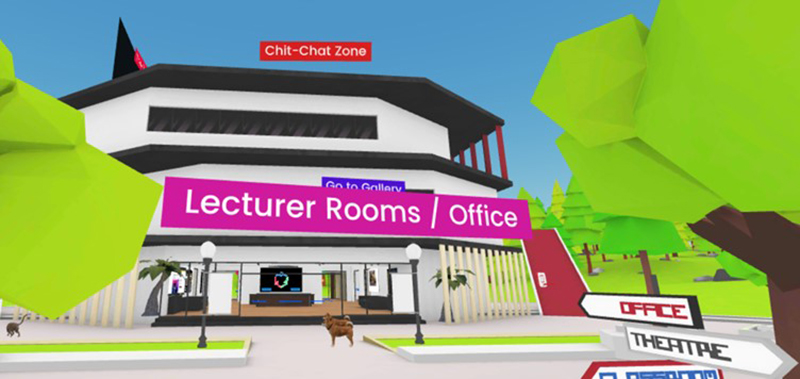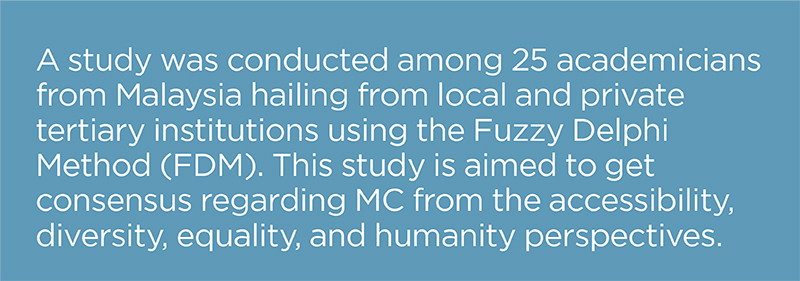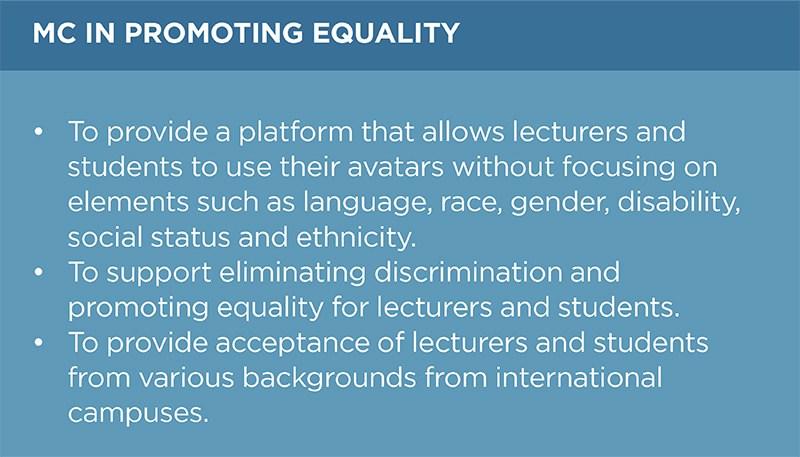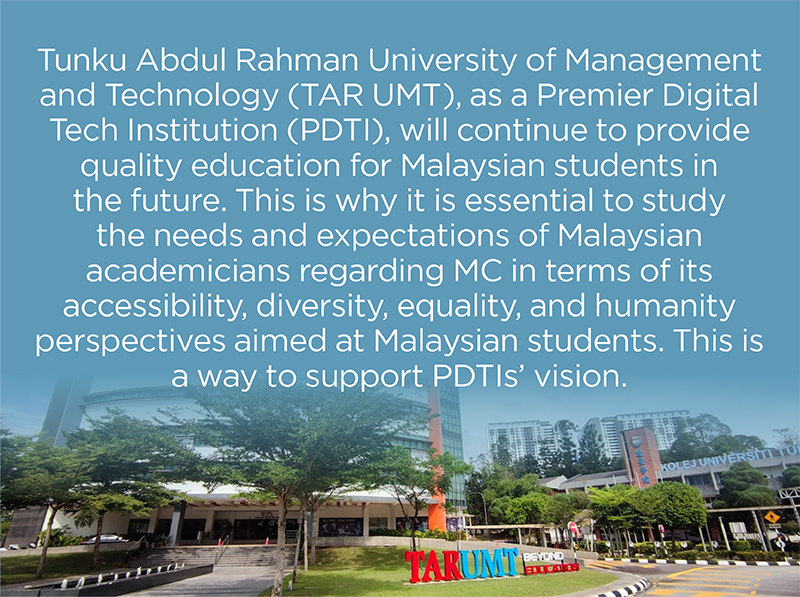Metaverse Campus: Perspectives on Social Benefits for Malaysians
Written by Dr Glaret Shirley Sinnappan, Senior Lecturer, Faculty of Computing and Information Technology at TAR UMT

The Metaverse represents an innovative educational frontier for Malaysians, providing a concurrent virtual realm designed for academicians and students. Conceived as the Metaverse Campus (MC), this concept aims to transition traditional physical classrooms into a virtual platform which enables students from across the globe to partake in classes and events seamlessly.

The findings reveal that the Malaysian academicians' view on MC's accessibility perspective is to endorse globalisation, increase cooperation between academicians and students, provide the best user experience, protect security, and endow interfaces for target audiences from cross-world ecosystems. The academicians believe this will augment daily campus lives using senses such as touch, sight, sound, and smell in the future. They agree that the MC infrastructure is imperative to sustain excellent communication, processing, computation, rendering, simulation, storage, resource management, and operating systems.

From the academicians' point of view, they anticipate MC to consist of characteristics such as the ability to provide twin learning environments, virtual learning worlds, world simulators, learning service providers, blockchain, learning augmentation, Haptic or 3D touch, supportive apps, personal life recording, financing, sensation devices, Non-Fungible Token (NFT), and User-Generated Content (UGC). However, the academicians do not consider that MC will decrease operational costs compared to the operating cost of a physical campus.
From the diversity perspective, the academicians consider that MC will provide features and functionalities that support technologies of Extended Reality (XR), Virtual Reality (VR), and Augmented Reality (AR) and it will be a learning environment which offers the right tools to provide an immersive experience for meaningful learning.
They agreed that MC will benefit various parties, such as providing students with teaching and learning experiences beyond the classroom, enabling parents to monitor their kids' progress, and encouraging educational institutions to build reliable and accurate virtual and augmented environments. It is expected to support digital twin representatives between the physical and digital worlds.
The academicians also support that MC can provide various avatars that will permit lecturers and students to control the orientation of their bodies and eyes using node points for each human body part, such as elbows, legs, shoulders, hands, feet, etc. It should also be able to demonstrate the holistic scenes to lecturers and students using stereo-matching and depth estimation techniques. This will support lecturers and students in understanding their roles, contents, objects, and attributes, such as distance, characteristics, and actions, across different metaverse worlds.
MC will also be able to provide various interactions between lecturers and students, such as sharing access to assignments, announcements, events, lessons, timetables, and feedback. Lecturers and students will benefit from mobility needs, increased attendance, self-paced practices, content reviews, and science experiments in a virtual lab. Using the new Metaverse educational technology, MC is perceived to provide diverse career paths and orientations in a way that maximises benefits for current and future higher education students.

The academicians trust that MC will be an autonomous ecosystem that promotes equality, opportunities and respect for lecturers and students. With such positive effects, students are expected to contribute full participation in all campus activities.
Lastly, from the humanity perspective, MC is expected to harness positive humanistic values and opportunities among Malaysian lecturers and students. It can gather a community from diverse backgrounds and beliefs, which will enhance the transfer of knowledge and experience within a community. We believe that MC should be a platform that is accessible, diverse and inclusive. Besides, It will also provide a safe space where lecturers and students can report malicious users' behaviours and malpractices using the Decentralised Autonomous Organisation (DAO).
However, the academicians disagree that MC will be a platform that will preserve different cultural and artistic forms focused on society, humanity, spirituality, and culture. In addition, they do not think that MC will ensure significant ethical issues such as violating individual privacy, issues on data protection, bullying and scamming will be preserved. The academicians find it challenging to maintain users' fundamental rights to use avatars created to suit everyone's choice to show the importance of culture and cultural activities, norms, and communication values in the Metaverse worlds.






